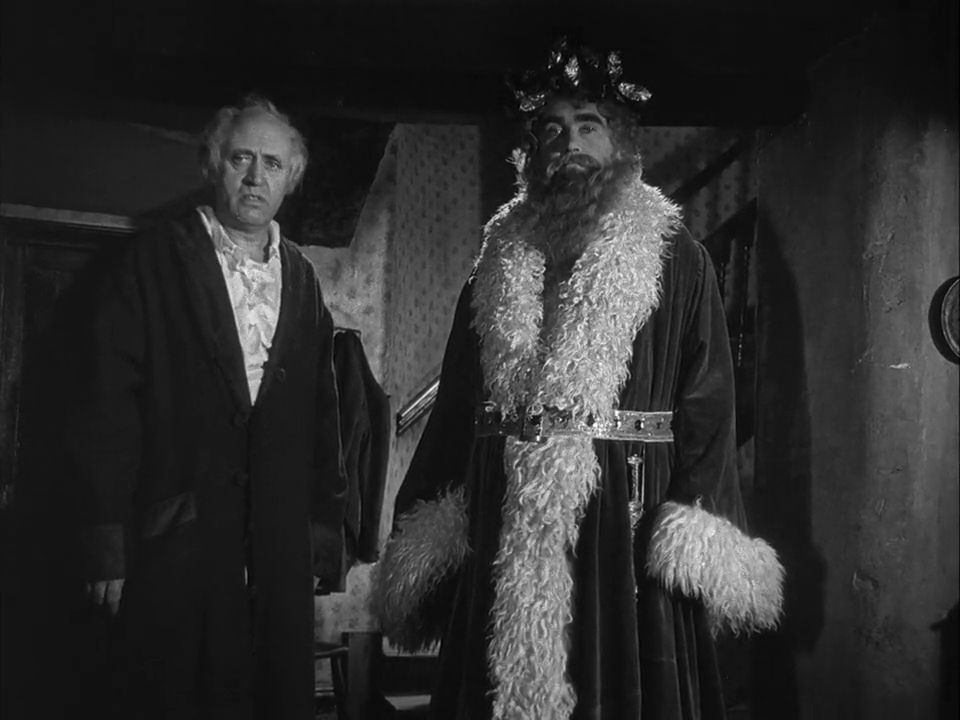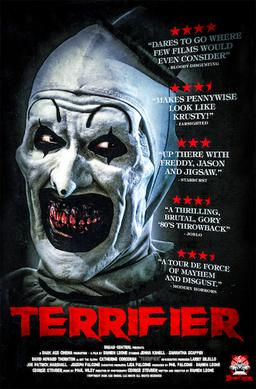Scrooge (1951) review
- Jeremy Kelly
- Dec 9, 2021
- 4 min read
Scrooge (1951)
Directed by: Brian Desmond Hurst
Produced by: Brian Desmond Hurst
Screenplay by: Noel Langley
Starring: Alastair Sim, Mervyn Johns, Hermione Baddeley, Jack Warner, Kathleen Harrison, Michael Hordern, George Cole

In 1843, Charles Dickens—often regarded as the greatest novelist of the Victorian era—published “A Christmas Carol,” the timeless classic about the selfish, miserly Ebenezer Scrooge (Alastair Sim) who’s visited by three ghosts on Christmas Eve. Over the years, the novel has become public domain under UK copyright law, so it’s been adapted many times in the form of plays, radio, opera, ballet and graphic novels. Some stories are loose spinoffs, and countless TV shows have done a parody; I was personally introduced to this story through “The Jetsons.” And of course, there have been a ton of film adaptations; the earliest survivor is a six-minute British picture from 1901. So I have a lot of choices on which one to review; I know “The Muppet Christmas Carol” is really popular among my fellow millennials, but I’m going to go with “Scrooge” from 1951. Boasting a haunting vibe and a layered performance from Alastair Sim, this is commonly considered one of the definitive versions, and for good reason.
You all probably know the story, but here’s a quick summary; Ebenezer Scrooge is a stingy, odious businessman who abstains from celebrating Christmas in any form. He refuses to donate collections for the poor, rejects a dinner invitation from Fred (Brian Worth)—his nephew and only living family—and just reluctantly agrees to give his poor clerk Bob Cratchit (Mervyn Johns) Christmas Day off. But when he returns home, he encounters the spirit of his long-deceased business partner Jacob Marley (Michael Hordern), who warns him that the Ghosts of Christmas Past (Michael J. Dolan), Present (Francis de Wolff) and Future (Czesław Konarski) will meet him during the night, in an attempt to get him to repent and change his cold, penny-pinching ways.

To this day, I can’t decide if Sim or George C. Scott is the best to ever play Scrooge, but both are fantastic for very different reasons. Sim plays him as more sad and bitter, with plenty of emphasis on his eyes and even his teeth, like he deep down acknowledges that he’s a miserable grump but sees no purpose in changing, in light of the kind of life he’s had. I also like that during Christmas Past, they throw in the touch that he and Cratchit have the same back-and-forth about Christmas Day every year. Scrooge’s arc is something that any of us can understand; I always remember the ending where he muses to himself that he doesn’t deserve to be happy, but ultimately accepts it anyway. Sometimes it is a matter of simply choosing to enjoy your life, accepting that you can be better than you used to be. Twenty years later, Sim—along with Michael Hordern, who plays Marley—reprised the role in the Oscar-winning animated short film directed by Richard Williams, who went on to do the animation for “Who Framed Roger Rabbit.”
The supporting cast is a little mixed; I’m not too invested in Cratchit or his family, with the exception of Hermione Baddeley as his wife, although they hit the proper emotional notes surrounding the misfortune of Tiny Tim (Glyn Dearman). Fred is also pretty one-note, just a bit too positive that it’s kind of obnoxious, while Hordern gives Marley an appropriately spooky and chilling voice. Really, it’s many of the Christmas Past characters that stand out, like Rona Anderson as Scrooge’s fiancée Alice—renamed from Belle—Jack Warner as his mentor Mr. Jorkin, and horror veteran Ernest Thesiger as an undertaker; that’s prime casting if I’ve ever seen it. I also really like Kathleen Harrison as Scrooge’s charwoman Mrs. Dilber; she has plenty of subtleties in her mannerisms, even if she goes slightly over-the-top.
The production design has the same appeal as most horror movies; after all, this is essentially a ghost story, so why not make it a little scary? All throughout, there are great visuals and camera angles, like the interiors of Scrooge’s house or the way the Ghost of Christmas Future first appears in the foreground in front of Scrooge, terrifying him. The music by Richard Addinsell, the sound design when all the spirits appear outside Scrooge’s window, and the overall look of the ghosts have an eerie but somehow tender mood. The previous film version from 1938 cut some of the grimmer aspects of the story to make it more family friendly, so it’s nice to see a feature black-and-white adaptation that really sells the frightening situations.

However, I think one major fault with the movie is the pacing; some of the scenes flash by too quickly—particularly when emphasizing the homeless people and their plight—some of them—mostly in Christmas Future—should have been ordered differently, and the Christmas Past portion goes on far too long. It runs through the usual moments, like Scrooge reuniting with his sister Fan (Carol Marsh), the party with his employer Mr. Fezziwig (Roddy Hughes), and his relationship with Alice, but there is a lot of time spent on Scrooge’s rise as a businessman, featuring scenes that aren’t in the book. I like Jorkin as a character, just a corrupt scoundrel who clearly teaches Scrooge some pointers; but numerous developments just don’t feel necessary, like entire scenes of Scrooge and Marley taking control of their company, Fezziwig going out of business, or Fan’s death, even if they are well done and establish interesting parallels. But it usually reaches a point where I’m on the urge of tapping my foot, waiting for the Christmas Present segment already.
But even with its problems, this is still an excellent version of the Dickens story, although I wouldn’t call it my favorite adaptation. I will probably review other versions in future years, as there are plenty of worthy movies out there; but this is maybe the one to start with if you’re looking for something really faithful. It was actually re-titled “A Christmas Carol” for its American release, but still retains “Scrooge” on the title screen. Regardless of how you prefer this story—with Muppets, Mr. Magoo, Mickey Mouse or musicals—it’s a powerfully moving and thought-provoking tale, which is why it has persisted through the decades. I know there are people that just don’t resonate with Christmas, finding it too commercialized or filled with phony sentimentalism. But we can find the best of ourselves in it too, whether it’s who we were, who we are now, and who we hope to be; God bless us, everyone.
My rating: 9/10





Comments